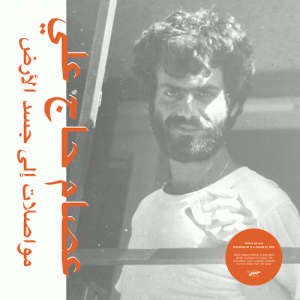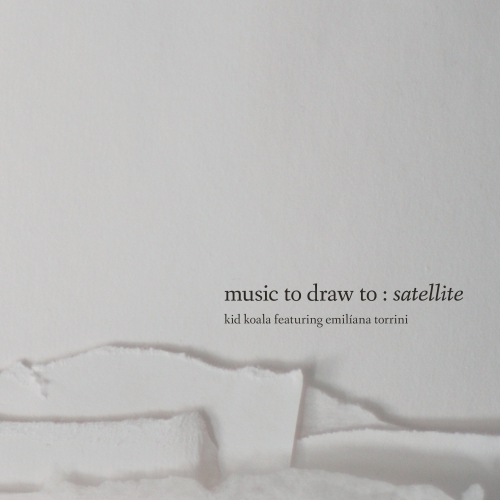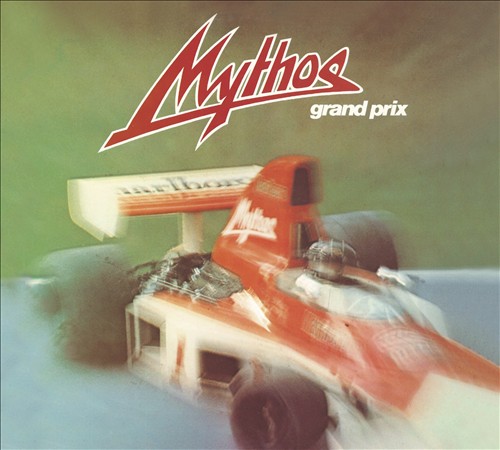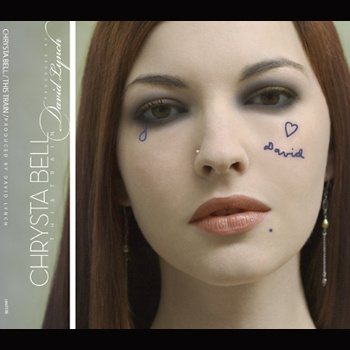 Habibi Funk‘s Jannis Stürtz unearths a true lost classic of Lebanese folk rock on Mouasalat Ila Jacad El Ard.
Habibi Funk‘s Jannis Stürtz unearths a true lost classic of Lebanese folk rock on Mouasalat Ila Jacad El Ard.
Lebanon, 1976: A vicious civil war, spanning fifteen years with over 120,000 casualties, is just beginning to rage. The weakened state was invaded by Syria, an occupation lasting until 2005. Dissidents were forced to flee, leaving their homelands and residing in exile. Lebanese folk singer Issam Hajali took up residence in Paris during 1977. While there, Hajali — the singer and head of Ferkat Al Ard, a popular folk / jazz / rock band with political overtones — would write and record Mouasalt Ila Jacad El Ard, his debut album.
Mouasalt Ila Jacad El Ard was recorded in just one day in Paris, using a cobbled together backing band of French, Algerian and Iranian musicians, as well as fellow Lebanese musician Roger Fahr, who had left Beirut around the same time. Due to time constraints and necessity, Mouasalt Ila Jacad El Ard is raw, energetic, immediate and passionate, capturing the lightning in a bottle of Issam Hajali’s homesickness, along with some truly inspired performances.When you hear “folk rock”, an image of homespun earnestness, probably captured by some wild’n’wooly academic-sounding field recordings, might spring to mind. If you’re expecting some countrified acoustic music, you’ll be startled by the slick, shiny, nearly progressive rock of Mouasalt Ila Jacad El Ard, which is laced with far-out synthesizers and non-Western instruments like a santour, often in the same track. Take album opener “Ana Damir El Motakallim”, which captures all of Mouasalt‘s idiosyncrasies in one nearly twelve-minute long jazz / prog / Lebanese folk hybrid. It’s built around a skeleton of Hajali’s choppy jazz guitar chords and funky breakbeats, given an Eastern tinge by the santour and a funk / fusion aftertaste with some smooth Fender Rhodes.
This all shifts on a dime with a soaring analogue synth solo, giving the track a far-out and futuristic, utopian vibe. It sounds like William S Burroughs describing one of the Egyptian souls, Khu, in The Western Lands: “Number three is Khu, the Guardian Angel. He, she, or it is third man out … depicted as flying away across a full moon, a bird with luminous wings and head of light. Sort of thing you might see on a screen in an Indian restaurant in Panama.” Or an ’80s hospital drama set in Beirut. Mouasalt Ila Jacad El Ard is no mere fusion record, though. It’s not merely a tasteless hodgepodge of sounds and cultures that don’t really go together to approximate some vague, bland exotic future. For all of its futurist leanings, Issam Hajali’s music is steeped in Lebanese history and culture. Most of his solo debut takes its lyrics from Lebanese revolutionary poet Samih al-Qasim, with Hajali supplying original music. The album’s origin itself is a lesson in Lebanese musical pedigree. When Hajali returned to Beirut in 1977, one of the cassette copies of his album came to the attention of Ziad Rahbani, the son of Lebanese pop singer Fahrouz — a legend in her home country — with Rahbani being an accomplished musician in his own right. Rahbani would help bring Hajali’s music to wider attention, as well as tapping him to play on some of his own recordings.You don’t have to be fluent in Lebanese music, history or culture to appreciate Mouasalt Ila Jacad El Ard, though. The feeling comes across in Hajali’s winsome, wistful vocals, warm as sun-soaked denim, as mid-day honey; the feeling of homesickness, of displacement, of nostalgia and romance, and hope. You also don’t have to speak Arabic to appreciate the instrumental performances, which hold up against some of the iconic folk records in the canon. Hajali’s guitar playing is truly exceptional, clean and precise as a German engine or a clockwork automaton, ticking on smoothly 250 years after the fact. He belongs alongside six string virtuosos like Nick Drake, Bert Jansch or James Taylor. Hopefully, this much-needed reissue from Habibi Funk will cement his rightful place in the firmament.
While Issam Hajali and Ferkat Al Ard would go on to greater things, Mouasalt Ila Jacad El Ard would remain under-heard, until now. Hajali could only afford to print the album to tape, and it’s estimated that less than 100 copies were made. THIS is what reissue and archival records are for, to bring greater awareness and appreciation of underappreciated gems. It’s one of the most impressive albums to come out of the private press, and an essential gateway into Lebanese music, history and culture.-J Simpson-




3 thoughts on “Issam Hajali – Mouasalat Ila Jacad El Ard”
This is such a lovely and enthusiastic review. It does compel the reader to track this album down
Hello,
Please i want talk with Issam Hajali about this 45tr of rainbow bridge https://www.youtube.com/watch?v=Ss7BlVUFwo4
can you to forward my coordonnées
Hi Philippe
We don’t have anything to do with this release, but you might be able to contact Issam Hajali via the label (https://habibifunkrecords.bandcamp.com/)
Good luck!